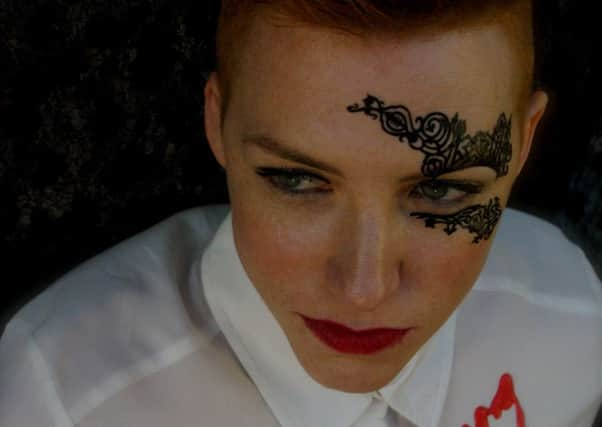Throwing voices: 25 choirs in 25 different places


There are examples from musical history where compositional style has been influenced, even determined, by a building’s architecture and acoustics. The Venetian polychoral music of Gabrieli, for instance, was a response to the multiple choir galleries of St Mark’s Cathedral and its ringing sound quality.
For the award-winning London-based composer, singer and writer Kerry Andrew, architecture and acoustics were the springboard for a work commissioned by the building conservation charity, The Landmark Trust, which next weekend celebrates 50 years of rescuing and restoring buildings of historic interest and architectural merit by opening the doors to 25 of its most distinctive properties across the UK.
Advertisement
Hide AdThey’re calling it the Golden Weekend, and besides throwing the spotlight, at selected sites, on sculptures specially commissioned this year from the artist Antony Gormley (for Scotland that means heading to Saddell Bay in Argyll), Andrew’s new choral work will be sung simultaneously at 3pm next Saturday in 25 Trust properties, three of which are in Scotland – Collegehill House in Roslin, Auchinleck House in Ayrshire and Saddell Castle.
None of these performances will present the music, a piece entitled Lines, Loops, Bones and Stones: An Anthem for Landmark, in the same way. For instead of furnishing the various choirs with a complete finished score, Andrew has provided a package of musical ideas, with instructions on how to put them together, rather like flatpack furniture from Ikea.
“I decided the best thing was to write lots of little segments of musical material, some of them rhythms, some of them little tunes, some of them chords,” Andrew explains. “There are about 50 of these, and the idea is that each group has a box of materials they can open like a treasure chest, and put their own stamp on the resulting music by combining them in their own way.”
There is no single solution to putting together what Andrew has written. More importantly, she says, it’s about using the material in a way that is inspired by each choir’s location. “I want them to take into account the atmosphere, the acoustic, maybe even the history of each individual building, and to think how they might perform the piece: either inside or outside the building, or maybe wandering around or having the audience wander around. I see it as a collaboration not just between me as a composer and them as musicians, but also between them and the architecture and surroundings.”
Since it’s impossible for Andrew to be in all 25 UK sites at the same time, there’s a lot hinging on the effectiveness of her written instructions. “There are five pages of them,” she says. “It took me a lot longer to write these than it did to write the music. I’ll be in London listening to the performance there. I’m hoping the rest sound very different. A lot of it’s down to chance, and it’s down to the performers to know what to do.”
Capital Voices Edinburgh will perform their version in Roslin, A Choired Taste at Auchinleck House, and Kintyre Chorale at Saddell Castle.
Advertisement
Hide AdAndrew, a double winner in last year’s British Composer Awards, likes the element of risk. “It’s about trying to think what to be in control of as a composer and what to give up to the performers.” And it’s an area she’s explored before. A couple of years ago, while composer-in-residence at the Handel House in London, she applied a similar chance technique to music she wrote for the recorder ensemble Consortium5.
“It was really similar in that it had a lot of fragments the ensemble could play around with. I also created a website called www.screech.handelhouse.org where people can look at these fragments, hear Consortium5 play them, and even work with them to make their own piece”, she explains. I’ve tried it, it’s fun.
Advertisement
Hide AdLike her music, 37-year old Andrew is a stylistic free spirit, and vivacious with it. She grew up on pop, but decided to study composition at York University – a music department known for its progressive broad-mindedness – where she gained a PhD. “I liked it there because they really encouraged you to immerse yourself in everything, not just classical music,” she says. “I got into folk in a big way, and jazz too.”
London beckoned, where she “followed her nose” and caught the performing bug. For the past 13 years she’s been part of the award-winning vocal trio Juice, commissioning bold new works from such close friends as fellow composer Anna Meredith. More recently she’s sung with progressive jazz sextet Metamorphic, and the cross-genre collective DOLLYman.
When we spoke, pre-election, she was involved in the London Southbank’s Changing Britain Series, as one of 20 composers who were asked to “create some kind of musical message on what they would say to the next government”. Andrew chose the NHS, writing a piece that combined a straightforward chamber ensemble (the London Sinfonietta) with an electronic track of recordings of people saying “NHS” and snippets of text from the NHS Act of 1946.
“You don’t need to say much else to get your point across,” she says. She tweeted a few well-known people, including politicians, to see if they wanted to contribute. “Surprise, surprise, I got no response from such obvious candidates as the health secretary and shadow health secretary. But Michael Sheen sent me a recording from Los Angeles, because he’s a very vocal NHS supporter.”
Andrew’s real point, as a composer, is about loosening the tethers that force music into convenient boxes. As today’s varied performances of her Landmark Trust commission will doubtless show, it’s a living art that ought to respond to the moment in time and the ambience of the place.
• Kerry Andrew’s Lines, Loops, Bones and Stones is performed at various venues as part of the Landmark Trust’s Golden Weekend on 16 and 17 May, www.landmarktrust.org.uk